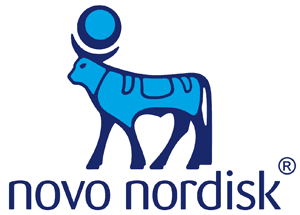 The heavy competition present in the modern insulins market has led to decreasing growth for Novo Nordisk, a Danish drug manufacturer. Novo Nordisk has found it more difficult to bring new products to the market due to the lack of growth in sales of modern insulin.
The heavy competition present in the modern insulins market has led to decreasing growth for Novo Nordisk, a Danish drug manufacturer. Novo Nordisk has found it more difficult to bring new products to the market due to the lack of growth in sales of modern insulin.
Despite being the world’s largest producer of insulin, Novo Nordisk shows a slowing of modern insulin sales. The company saw rising sales of diabetes treatment Victoza while modern insulin sales made up 43.6% of its total group sales for the second quarter of 2011.
The company expects full-year sales to rise by 11%, an increase over its earlier prediction of 8-10%. It also expects to see operating profits increase by 15-19% over its earlier prediction of 15%.
Jesper Brandgaard, Chief Financial Officer, expects sales of modern insulin to slow from quarter to quarter until a new product can be introduced. “All else equal, when you launch a new product you will have a fall in growth rates quarter by quarter, and the only way we can get growth going again is by launching a new product,” said Brandgaard. “We hope that degludec and degludec plus will come in and create new growth for our insulins in the United States.”
Brandgaard said that Novo Nordisk will soon be filing an application for registration of degludec in the U.S., although it could be a year to 18 months before the degludec is actually available to consumers. Brandgaard believes that degludec will become a “blockbuster,” or a drug that sells over $1 billion in a year.
Novo Nordisk blamed heavy competition from generic drugs in the oral anti-diabetic field. Healthcare reform across the world has also presented new challenges.
According to Swedbank analysist Johan Unnerus, “We expect modern insulin growth to slow ahead of approvals for the next generation of insulin, which will probably be late next year with the approval of degludec.” The approval of degludec will be a milestone for Novo Nordisk as both an ultra long-lasting insulin product and the premiere of the “next generation” of insulin.
Unnerus stated that the slow growth “leaves Novo a bit more exposed to any negative news or delays of degludec approval as the company faces slower growth.” Novo Nordisk has seen stiff competition from Sanofi-Aventis, manufacturer of Lantus.
Novo Nordisk saw its shares rise by 1.2% to 615 Danish crowns, though still trailing behind a previous high of 632 crowns.
Novo’s stock still beat out the European healthcare sector index and the Copenhagen bourse’s bluechip index, which rose 0.3% and 0.4% respectively.
Novo saw its earnings before interest and tax (EBIT) for the second quarter of 2011 reach over $1 billion, or 5.27 billion Danish crowns ($1.01 billion). Despite the growth, the numbers fell below the Reuters analyst estimate of 5.34 billion crowns. Novo’s second-quarter sales reached 16 billion crowns, which also placed it below analysts’ prediction of 16.57 billion for the quarter.
Victoza, Novo’s treatment for diabetes that stimulates the body into producing its own insulin, rose in sales by 322% to 1.25 billion crowns. That number eclipsed the analysts’ prediction of 1.22 billion.
Novo Nordisk’s sales of modern insulin rose by only 3% to 6.97 billion, falling far below predictions of 7.3 billion.
Two of Novo’s biggest competitors, AstraZeneca and Sanofi-Aventis, both raised their forecasts for 2011 revenues upon reporting their second-quarter earnings.